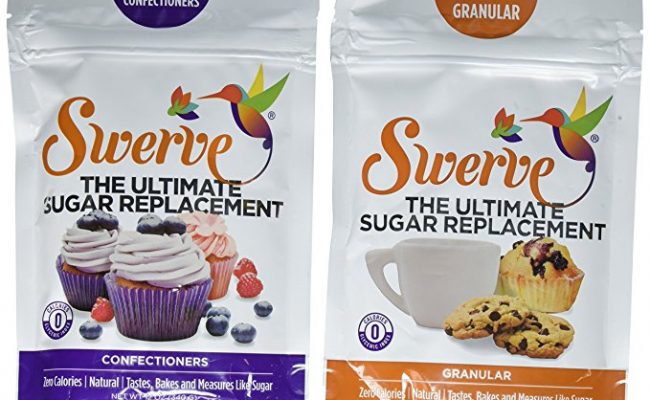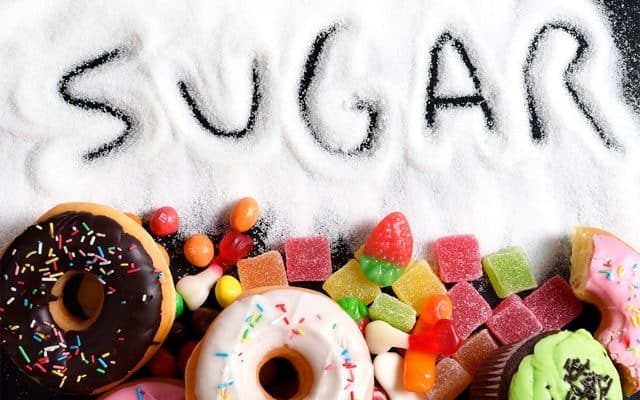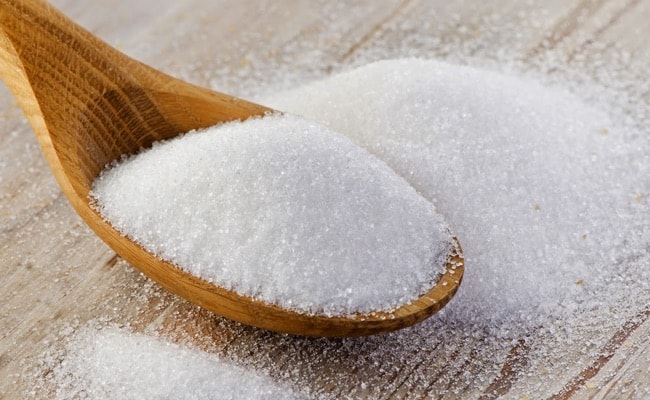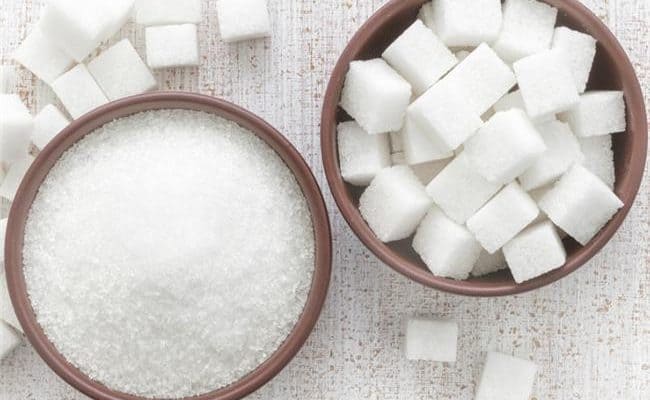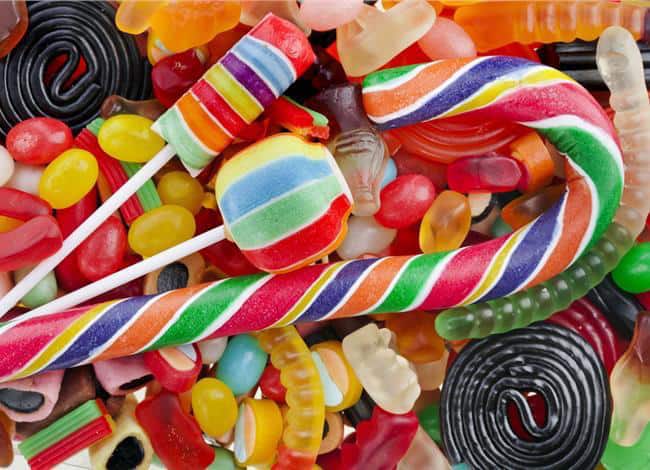
Artificial sweeteners are a very controversial subject. On one hand clinical trials endorse artificial sweeteners and state that they play a positive role in weight loss and are not harmful. Other studies show strong links that artificial sweeteners increase the risk of cancer, heart diseases, diabetes and gut-alterations.
Everyone you ask will have an opinion. No one can make up your mind for you. So you will have to decide for yourself. However, if it is a heated topic it automatically indicates to me, that I should be extremely cautious. After all you don’t hear anyone debating weather kale is healthy or not.
From my point of view: I don’t thing anything artificial belongs inside our bodies.
What are artificial sweeteners?
As the name already indicates, there is nothing natural about artificial sweeteners. They are chemicals artificially synthesized in the lap.
Artificial sweeteners are classed as nonnutritive food additives, which means they provide zero calories and zero beneficial nutrients.
They are also known as intense sweeteners, because only tiny amounts are required to excite your taste buds.
Artificial sweeteners that have been approved by the FDA (Food and Drug Administration)
Aspartame
This is probably the most common artificial sweetener and found in frozen desserts, diet soda or table top sweetener known as “Equal” or “NutraSweet”. It is 200 times sweeter than sugar. When exposed to heat and air, aspartame breaks down into its chemical constituents.
Sucralose
“Splenda” is made from regular sucrose but chemically altered in such a way that the body doesn’t recognize it. It is 600 times sweeter than sugar.
Saccharin
Saccharin is banned in Canada but available in U.S. know as Sweet’N Low or Sugar Twin. It is 300 times sweeter than sugar, heat stable but may have a metallic aftertaste. It’s used in no-sugar-added foods or as tabletop sweetener.
Neotame
Neotame made by NutraSweet is aspartame on rocket fuel. It is 8,000 times sweeter than sugar. It is also more stable at high temperatures than aspartame, which is why the food industry uses it for a wider array of food products, including baked goods.
Acesulfame potassium
Known as Sweet One, Nutrinova or ace-K, acesulfame potassium is used by the food manufacture industry in combination with aspartame. You can find it in chewing gum, diet soda, candy, dairy products, no-sugar-added baked goods and desserts and as the tabletop sweetener Sunett. It is 200 times sweeter than sugar.
Advantame
Advantame is the newest edition to the artificial sweetener collection and was approved by the FDA in 2014. It is derived from aspartame, and ultrahigh potency sweetener – 20,000 times sweeter than table sugar.
Does it all sound good to you? Where is the hook?
Artificial sweeteners may contain fillers
Since artificial sweeteners are very concentrated, only a tiny amount is needed to equal the sweetness of sugar. But how do you measure a very tiny dot? Therefore artificial sweeteners come with fillers that give it bulk. Fillers – whatever they are made of – can be a source of calories and carbohydrates.
Artificial sweeteners are ultra potent
Only a tiny amount is needed, so it can’t be dangerous? Think twice said the deathstalker scorpion. Give me one example where potent and concentrated was not a possible threat to health? If you are not sure what this additive is going to do to your body, you might want to reconsider.
In the case of aspartame for instance: One byproduct of breaking down aspartame in your body is formaldehyde, which is extremely toxic to your health even in small amounts.
Artificial sweeteners are cheap
If you were to bake a cake for a bunch of people you’re not friends with what sugar substitute would you use? High-quality, more expensive and nutritious organic dates or a cheap sugar substitute? Right.
Hugh food corporation’s are successful not because they provide quality products but because they know how to save money and how to support each other’s business.
Artificial sweeteners provide a false sense of energy
A best friend brings you a nicely wrapped gift box. You are super excited and expectations are high. But after you ripped the paper off you discover, the box is empty. Disappointed? Yes, so is your body when you ingest artificial sweeteners.
Your taste buds taste sugar and your brain thinks sugar but your body doesn’t get any sugar. Unfortunately, just the taste of sugar sparks an array of processes in your body, which leads to crash and food cravings. So you end up craving and eating more.
Artificial sweeteners alter your “bliss point”
We think because artificial sweeteners do not actually contain sugar, we can have lots of it? Not so much. The more sweet stuff there is in your diet the more you will crave it in the future.
Artificial sweeteners or too much of any kind of sugar will alter your bliss point. The bliss point is the optimum concentration of sweetness at which your brain experiences the most sugar pleasure.
What to do?
If you desire a sweet taste, go for the real stuff. Raw honey, maple syrup, coconut palm sugar or organic unsulfured blackstrap molasses are great choices. Also try fresh or dried fruit to satisfy your craving. See also: 4 natural sweeteners that are good for you.
When you read studies about artificial sweeteners try to find out if these were done independently or funded by a company that benefits from the use of artificial sweeteners.
Avoid boxed processed food or get a master in reading food labels. Sadly the food manufacturing industry knows how to hide the words sugar or artificial sweeteners from us. No-added-sugar products may still contain artificial sweeteners.
Go off artificial sweeteners for a week or two and notice how you feel. When you introduce them back, see if you experience unexplained headaches, dizziness, diarrhea or bloating.
Happy experimenting.
